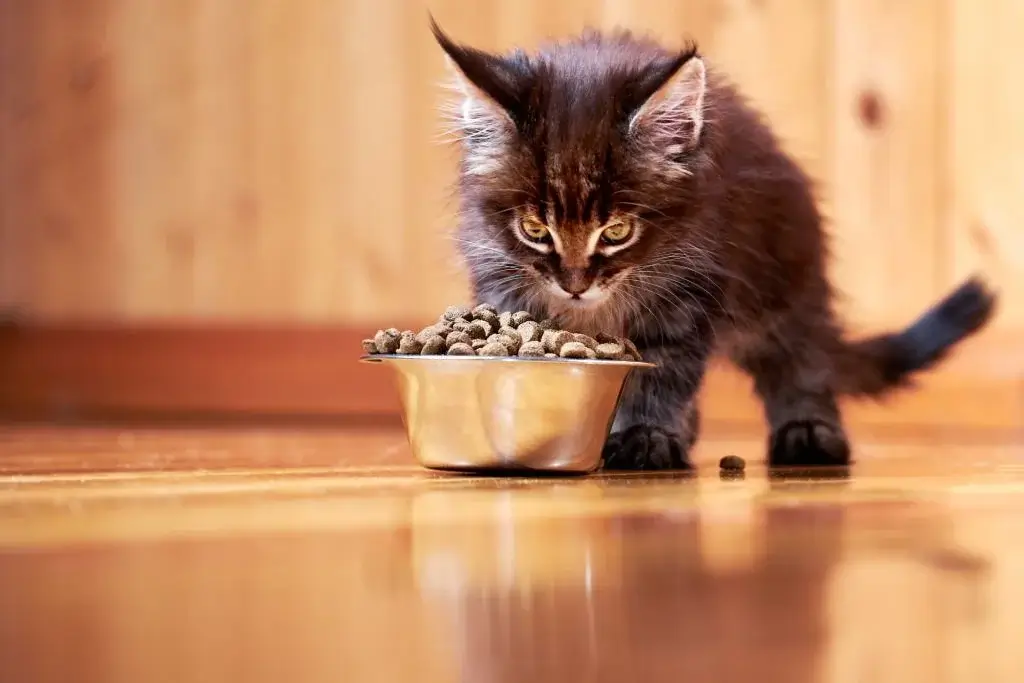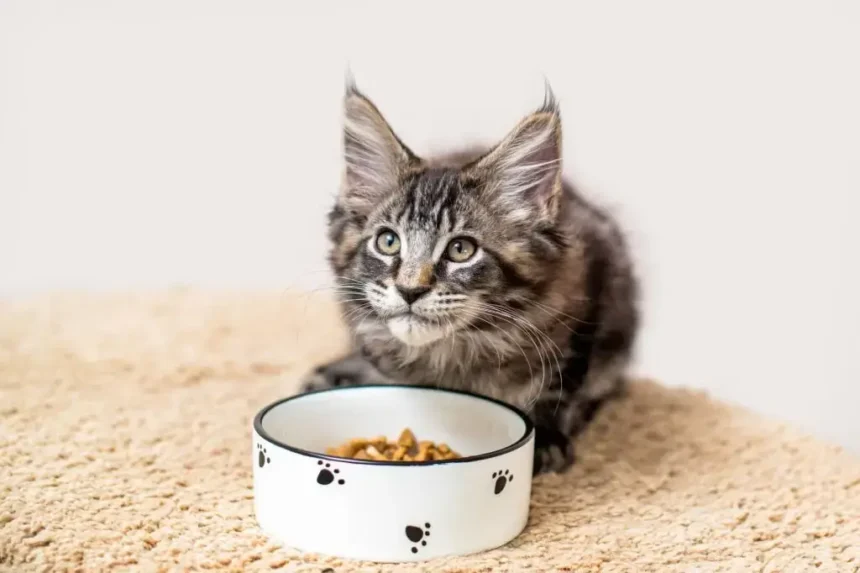Kittens are cute and cuddly creatures that bring joy and happiness to our lives. As new kitten owners, it’s essential to know what food is best for our little furballs. One of the most common questions new owners have is whether their 2-month-old kittens can eat dry food. In this article, we will explore the topic in depth and provide you with the information you need to make informed decisions about your kitten’s diet.
What is dry food, and why is it popular?
Dry cat food, also known as kibble, is a popular choice for many cat owners. It is a type of cat food that has been dehydrated and processed into small, bite-sized pieces. Dry cat food is easy to store, convenient to use, and can be left out for your cat to nibble on throughout the day.
Dry cat food is also a popular choice because it is often less expensive than wet cat food. Additionally, it has a longer shelf life and does not require refrigeration, which makes it a convenient option for busy cat owners.
Can 2-month-old kittens eat dry food?
The short answer is yes, 2-month-old kittens can eat dry food. However, it’s important to note that kittens have different nutritional requirements than adult cats. They require a diet that is higher in protein, fat, and calories to support their rapid growth and development.
When selecting a dry cat food for your kitten, look for one that is specifically formulated for kittens. These foods will have the appropriate balance of nutrients to support your kitten’s growth and development. It’s also important to note that kittens should be fed kitten food until they are at least 1 year old.
How to introduce dry food to your kitten
When introducing dry food to your kitten, it’s essential to do it gradually. Sudden changes in diet can upset your kitten’s stomach and cause digestive issues. Here’s a step-by-step guide to introducing dry food to your kitten:
Step 1: Start by mixing a small amount of dry food into your kitten’s wet food. Begin with a ratio of 75% wet food to 25% dry food.
Step 2: Gradually increase the amount of dry food in your kitten’s diet over the course of several days. Aim for a ratio of 50% wet food to 50% dry food.
Step 3: Once your kitten has adjusted to the new diet, you can begin to decrease the amount of wet food and increase the amount of dry food. Aim for a ratio of 25% wet food to 75% dry food.
Step 4: Once your kitten is eating only dry food, you can begin to provide them with small amounts of water throughout the day. Remember to provide your kitten with fresh water at all times.
Tips for feeding your kitten dry food
When feeding your kitten dry food, there are a few things to keep in mind:

Portion control
It’s important to feed your kitten the appropriate amount of food each day. Overfeeding can lead to obesity, which can cause health problems later in life.
Fresh water
Always provide your kitten with fresh water to help them stay hydrated.
Clean bowls
Keep your kitten’s food and water bowls clean to prevent the growth of bacteria and other harmful microorganisms.
Gradual changes
As mentioned earlier, it’s important to introduce new foods gradually to prevent digestive issues.
High-quality food
Look for high-quality kitten food that is specifically formulated for their nutritional needs.
FAQ’s
How often should I feed my 2-month-old kitten?
You should feed your 2-month-old kitten four times a day. As they get older, you can gradually decrease the number of feedings to two or three times a day.
How much dry food should I feed my kitten?
The amount of dry food your kitten needs will depend on their weight and age. A general rule of thumb is to feed your kitten about 1/3 to 1/2 cup of dry food per day, split into four meals.
Can I mix wet and dry food for my kitten?
Yes, you can mix wet and dry food for your kitten. However, it’s important to introduce new foods gradually and make sure your kitten is getting the appropriate balance of nutrients.
Is it okay to leave dry food out for my kitten to nibble on throughout the day?
It’s okay to leave dry food out for your kitten to nibble on throughout the day, but it’s important to monitor their food intake and make sure they’re not overeating.
Can kittens eat adult cat food?
No, kittens should not eat adult cat food. Adult cat food does not provide the appropriate balance of nutrients for kittens, who require a higher protein, fat, and calorie content to support their growth and development.
What should I look for when choosing a kitten-specific dry food?
When choosing a kitten-specific dry food, look for a product that has a higher protein, fat, and calorie content than adult cat food. It should also have the appropriate balance of nutrients, such as vitamins and minerals, to support your kitten’s growth and development.
Can kittens eat human food?
Kittens should not eat human food as it may not provide the appropriate balance of nutrients for their growth and development. Additionally, certain human foods can be toxic to cats, such as chocolate, onions, and garlic.
How long should I feed my kitten kitten-specific food?
You should feed your kitten kitten-specific food until they are at least 1 year old. After that, you can gradually transition them to adult cat food.
Can I feed my kitten a vegetarian or vegan diet?
No, you should not feed your kitten a vegetarian or vegan diet. Cats are obligate carnivores and require meat in their diet to meet their nutritional needs.
What should I do if my kitten is not eating their dry food?
If your kitten is not eating their dry food, there may be an underlying health issue, or they may not like the taste of the food. Consult your veterinarian to rule out any health issues, and try different brands or flavors of kitten food to see what your kitten prefers. It’s important to make sure your kitten is eating enough to support their growth and development.
Conclusion
In conclusion, 2-month-old kittens can eat dry food, but it’s essential to choose a kitten-specific formula and introduce it gradually. Kittens have different nutritional requirements than adult cats and require a diet that is higher in protein, fat, and calories to support their growth and development.
When introducing dry food to your kitten, be patient and give them time to adjust. Gradual changes are key to preventing digestive issues and ensuring your kitten’s health and well-being.
Remember to practice good feeding habits, such as portion control, providing fresh water, and keeping their food and water bowls clean. By following these tips and choosing high-quality kitten food, you can help ensure that your kitten grows into a healthy, happy adult cat.


